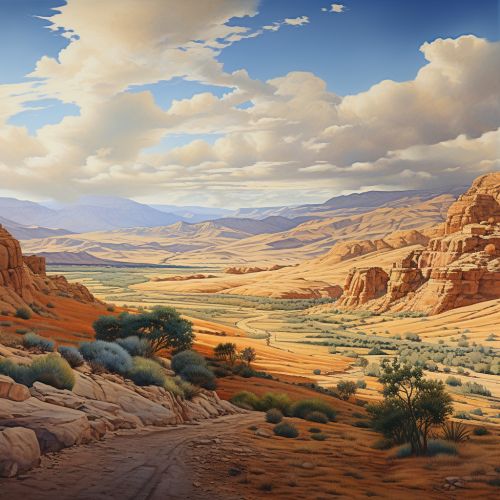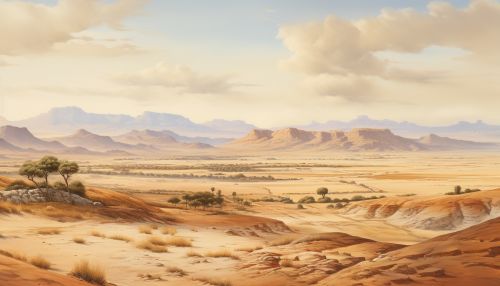Maghreb
Geography
The Maghreb region, also known as Northwest Africa or Northern Africa, is a major part of the African continent. It is primarily composed of five countries: Algeria, Tunisia, Morocco, Libya, and Mauritania. The region is bordered by the Mediterranean Sea to the north, the Atlantic Ocean to the west, and the Sahara Desert to the south and east. The region's diverse geography ranges from coastal plains to mountain ranges and desert landscapes.


History
The history of the Maghreb is rich and complex, marked by the influence of numerous civilizations and cultures over the centuries. The region's early history saw the rise and fall of the ancient Carthaginian Empire, followed by Roman, Byzantine, and Arab rule. The Arab conquest in the 7th century brought Islam to the region, profoundly influencing its culture and society. In the late 19th and early 20th centuries, the Maghreb fell under French and Spanish colonial rule, which left a lasting impact on the region's political, economic, and social structures.
Culture
The culture of the Maghreb is a blend of Berber, Arab, French, and other influences. The region's rich cultural heritage is reflected in its literature, music, art, and cuisine. The Maghreb is known for its traditional Berber music and Andalusian classical music, as well as its distinctive culinary traditions, which feature staples like couscous and tajine. The region's cultural diversity is also evident in its languages, with Arabic and Berber widely spoken, along with French in certain areas due to historical ties.
Economy
The economy of the Maghreb is diverse, with key sectors including agriculture, mining, manufacturing, and services. The region is rich in natural resources, particularly hydrocarbons, with Algeria and Libya being major oil and gas producers. Agriculture plays a significant role in the economies of Morocco and Tunisia, while manufacturing is a major sector in all five countries. The region also has a growing services sector, particularly in areas such as tourism, telecommunications, and finance.
Politics
The political landscape of the Maghreb is diverse, with each country having its own political system and challenges. The region has experienced significant political change in recent decades, including the end of colonial rule, the rise of nationalism, and the Arab Spring uprisings. Despite these changes, the region continues to face political challenges, including issues related to governance, human rights, and regional integration.
